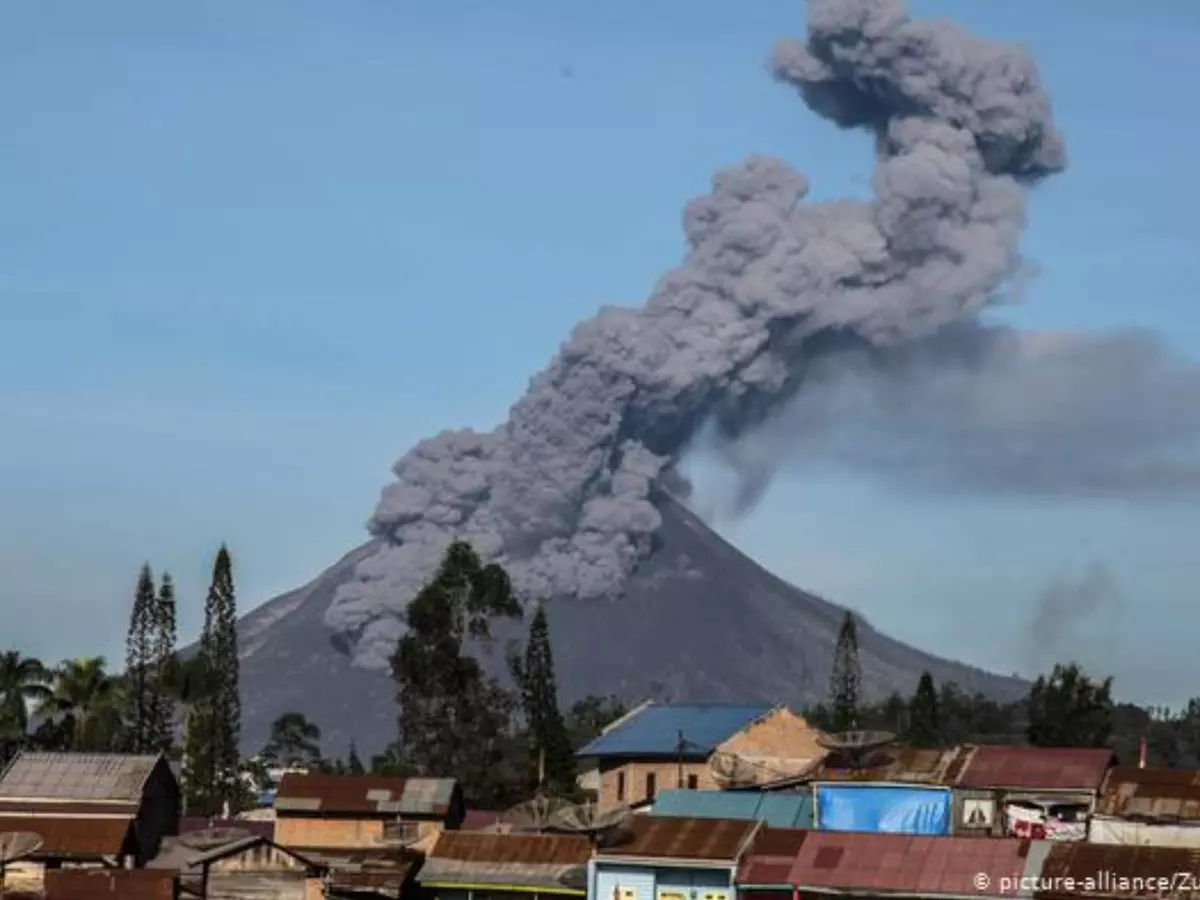Indonesia's Mount Sinabung Volcano Spews Ash As High As 5 Kms Into The Sky
Authorities said there was no immediate danger to life or property. A 5-kilometer (roughly 3-mile) ring around the volcano has been left unoccupied over recent years.

Indonesia's Mount Sinabung volcano sent a cloud of hot ash as high as 5 km (3.1 miles) on Tuesday, in its first big eruption since August last year.
Vulcanologists said 13 separate blasts had been recorded, belching debris up to 5,000 meters (16,400 feet) above the island of Sumatra.
Authorities said there was no immediate danger to life or property. A 5-kilometer (roughly 3-mile) ring around the volcano has been left unoccupied over recent years.
 AP
AP
Avalanche of hot clouds likely
There has been no reported flight disruption, and no evacuation orders have been issued.
It is believed that a large lava dome beneath the surface could burst at any time, causing a large avalanche of hot clouds.
#Indonesia: In #Sumatra active volcano #Sinabung threw a new column of ash today.#Volcano pic.twitter.com/qAackLABpL
¡ª Asian OSINT (@AsianOSINT) March 2, 2021
Mount Sinabung's activity has increased since August last year and the alert for the volcano in North Sumatra province has been placed at second highest level.
Videos on social media showed little panic among residents over the eruption, which sent a column of white ash into the blue sky.
 AP
AP
Wirda Br Sitepu, a 20-year-old resident of a neighbouring village, said the situation had since calmed. "The mountain is not erupting and the ash has decreased," he said.
130 active volcanoes in Indonesia
Indonesia straddles the Pacific Ring of Fire, a highly active seismic zone, where different plates on the Earth's crust meet and create a large number of earthquakes and volcanoes.
More than any other country. Sinabung had been inactive for centuries before it erupted again in 2010.
March 2, 2021, ~ Eruption ~ Mount Sinabung, Indonesia #volcano #sinabung #indonesia
¡ª Volcano Time-Lapse (@DavidHe11952876) March 2, 2021
Various clips, webcams are down. pic.twitter.com/Z7z7BvcI39
It erupted again in 2013 and has remained highly active since. An eruption in 2014 killed at least 16 people, while seven died in a 2016 blast.
